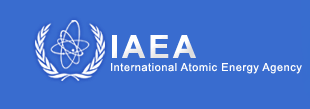Speaker
Mr
Hansoo CHANG
(Republic of Korea)
Description
Until the Fukushima disaster of March 2011, the recent history of nuclear power has been relatively uneventful. About 440 power reactors in 30 countries have been operating for almost 25 years without a catastrophic accident, and this relative uneventfulness and encouraging safety record led many to believe in the viability of a large-scale global nuclear expansion or renaissance. Post-Fukushima, the relative economics of nuclear power compared with other generating technologies may deteriorate. Finance providers may demand tougher financing conditions, driving up the cost of capital, and some may decide to discontinue investing in nuclear projects altogether. More stringent safety regulations may lengthen lead times for construction and increase construction and operating costs, as could more vigorous action by opponents of nuclear power. In view of these uncertainties, we examine the potential of fusion power by assuming that no more reactors are built beyond those already under construction and government confirmed plants in the TIMES (The Integrated MARKAL EFOM System) model. The TIMES model maps the Korean electricity energy system from 2010 to 2050 in five year time steps, modeling in detail the primary energy supply and electricity generation sectors. To examine the potential of fusion power, three scenarios (base, no more nuke and high carbon) are adopted to estimate the long-term role of fusion power. In the ‘no more nuke’ scenario, fusion power takes a substantial share of the market in 2040 and 2050 compared to the ‘base’ case. The goals of carbon mitigation have a critical role in the degree of penetration by fusion power. Higher carbon constraints, lead to more fusion power to generate electricity.
Country or International Organization of Primary Author
Republic of Korea
Author
Mr
Hansoo CHANG
(Republic of Korea)
Co-authors
Mr
Dong-yup KANG
(National Fusion Research Institute)
Mr
Hyunsoo THO
(National Fusion Research Institute)
Mr
Won-jae CHOI
(National Fusion Research Institute)
Prof.
Young-gu PARK
(Ajou University,)

